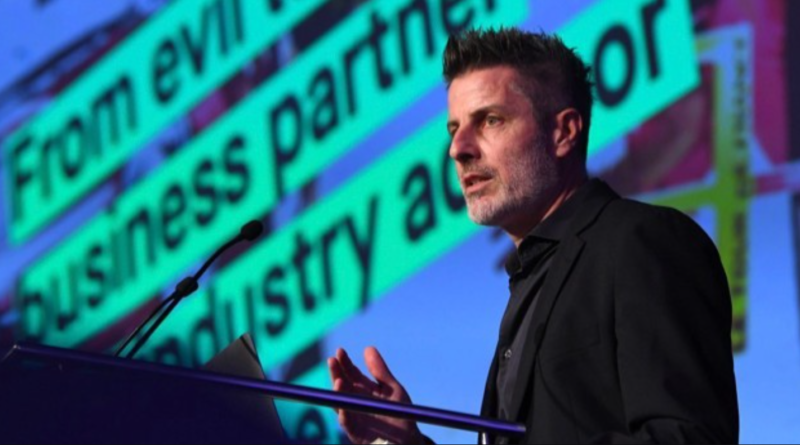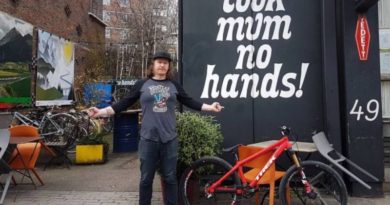Frank Aldorf Q&A: The power of brands to drive social and societal change
Frank Aldorf is no stranger to driving change. He’s been a major driving force in the promotion of women’s cycling for the past 10 years, working in Chief Brand and Marketing roles at Specialized, Canyon, and Internetstores, the world’s leading digital cycling retailer, and part of Signa Sports United.
 Speaking to us in a personal capacity, expressing his own views, we asked 3 key questions about the social and societal change brands can impact, with a specific emphasis on women’s cycling.
Speaking to us in a personal capacity, expressing his own views, we asked 3 key questions about the social and societal change brands can impact, with a specific emphasis on women’s cycling.
We first asked Frank to ‘explore the power that brands have, and the role they can play, in shifting the dial when supporting women’s sport, and the impact this can have on wider society.’
Frank answers:
“Think of brands as platforms.
They are not just commercial institutions that sell products or services.
Brands (are) building a platform for communities and their audiences – ultimately their customers. To interact with each other, to explore, to create experiences and to inspire. That way you build this strong emotional bond with your audience on a much deeper level than pure tech specs or product features.
And as people (we) buy not what you sell as a brand but ‘who you are’.
Brands need to take a stand, provide a clear position in the market. Only then are consumers able to form an opinion about the brand and ultimately about the product or services this brand offers.
Ultimately (as a brand) you want people to like or hate you, agree or disagree with you as a brand, your positioning, what you say, and how you act as a brand. You want people to care about you – one way or the other. Maybe become even part of pop culture or a movement. The other option is you can easily be forgotten.
A lot of companies are not aware of how powerful and influential their brands could become. But it is directly linked to scale and growth and longer-term success.
(Many) brands are not aware that they are part of conversations within the communities anyway. People talk about you, and you are better (being) part of these conversations, creating your own storyline, that is in line with your believes, (otherwise) people will make something up.
How does this relate to women’s sport?
- As a brand you can be linked to that topic that is at a cultural tipping point and it will have a positive impact on your brand perception.
- You have always two options: create your own storylines from scratch or join an already existing movement and help move the needle.
- If you join something that is already at a tipping point and has some momentum you need less energy and resources to get it off the ground. And there is already media attention. (Zwift and TdF femmes is a perfect example).
- Empowering women is the general overlaying theme here
- By using this momentum, you are able to get in touch with a much wider audience
It’s an accelerator, a booster in your ambition to let more people know that you exist and let them know who you are and what you have to offer.”
Next we asked Frank to, ‘explain the influence which resides in the way brands and businesses communicate their involvement in women’s cycling as a powerful support of change.’
“As a brand you want to be an enabler of change.
(By) getting involved in a case like changing the cycling sport forever, by supporting women in cycling, and lifting the sport to the next level, you are setting an example.
It’s an emotional topic, a social and societal topic, that goes way beyond your commercial operations and bottom line.
- Leading brands need to take such responsibility and lead such conversations that go beyond their business.
- Consumers are able to experience who you truly are as a brand.
- Words become actions.
With media and athletes and their fans you have a huge set of multipliers that lift your story and prove and approve your story.
And this not only works external but internal as well.
(This represents) a big driver of company culture, impacting how much your people feeling connected to the brand. (These elements) come even before you talk about consumers and target groups.
Create the believers within the company.”
Lastly we asked Frank to, ‘Discuss how best to communicate this message to retailers, demonstrating through words and actions, that customer demographics are changing fast (triathlon is way ahead of cycling in this respect), that there is a unique opportunity for those who authentically connect with, and actively engage with, women’s cycling (and wider women’s sport).’
“There are more people on bikes than ever before. More riders in general and more women on bikes in particular. There is (extensive) research on it, and, by the media coverage, and all kinds of sources, it’s obvious.
Retailers should see this development in their own stores as well.
There is no doubt.
This has an effect on sports participation, and just follow(s) other sports that have gone through this development already, years ago. It’s nothing new and it is now in cycling: Participation and viewership.
We need to keep the momentum going and everyone needs to jump in.
You have some first movers, some followers now and we need to keep the momentum high to create lasting change. You see the viewership and how it is shifting especially within younger audiences. And you don’t want to grow old with your audience as a brand. Keep young and fresh.
This (represents a) unique opportunity (especially as) some established sports are very crowded already; exposure and visibility is limited and very expensive.
- Fast movers and followers will benefit from being in it earlier. Like Zwift and others.
- It needs to stay authentic and fits your brand; that is very crucial.
- It shouldn’t feel like a stretch.
Cycling within new mobility is such a positive and future (focused) topic. As well as empowering women. To me that’s a perfect storm.
Get involved and take active part in it.
As a spectator brand you will not benefit from it that much.”



